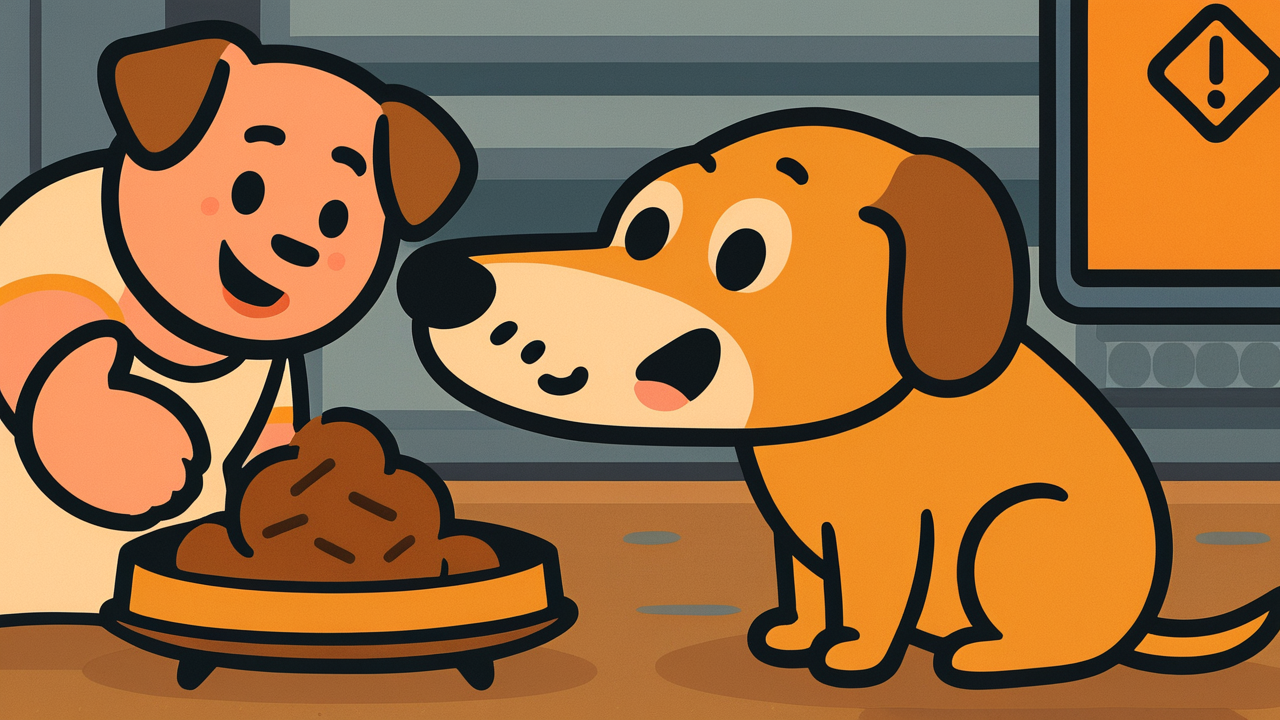How to Read “自慢の糞は犬も食わぬ”
Jiman no kuso wa inu mo kuwanu
Meaning of “自慢の糞は犬も食わぬ”
This proverb means that praising or boasting about oneself has absolutely no value to others, and is rather bothersome and unbearable to listen to.
Self-praise and boastful stories may feel good to the person telling them, but they have no value to those who are forced to listen—in fact, they are unpleasant. By comparing them to excrement that even dogs won’t eat, it creates a powerful impression of their worthlessness.
This proverb is used when someone is excessively praising themselves or going on endlessly with boastful stories. Rather than saying it directly to the person, it’s more often used between third parties when they encounter such a person, saying something like “That person’s boastful stories are truly Pride’s excrement even dogs do not eat.” Even today, this teaching applies to various situations, from boastful posts on social media to war stories at work. In Japanese culture, which values modesty, it has been passed down as wisdom to restrain the desire for self-display.
Origin and Etymology
While the clear literary origins of this proverb are not certain, it is known as an expression that has been used since the Edo period. Looking at the structure of the phrase, it uses a distinctly Japanese technique of ironic expression that combines the contrasting concepts of “pride” and “excrement.”
What’s interesting is how this expression cleverly utilizes the habits of dogs. Dogs are omnivorous and would normally eat feces, but the phrase uses the meaning that something is so worthless that even they wouldn’t eat it. In the common culture of the Edo period, many proverbs were born that used the behavior of such familiar animals as examples.
Also, the word “jiman” (pride/boasting) itself has changed in meaning over time. In modern times, it tends to be used simply to mean “feeling proud,” but in ancient times it was a word with stronger negative nuances like “conceit” or “arrogance.”
The background to this proverb’s establishment is thought to lie in Japan’s cultural foundation that considers modesty a virtue. As a teaching that warns against excessive self-display, it became popular among common people and has been passed down to the present day.
Usage Examples
- There goes the manager with his war stories again—truly Pride’s excrement even dogs do not eat
- Her social media is full of photos of herself—this is exactly what Pride’s excrement even dogs do not eat means
Modern Interpretation
In modern society, the meaning of this proverb has become more complex and interesting. With the spread of social media, we now have dramatically more opportunities to share our daily lives and achievements. It has become normal to share everything from photos of meals to travel experiences and work accomplishments on Instagram, Facebook, Twitter, and other platforms.
However, an interesting phenomenon is occurring here. While the traditional values of “Pride’s excrement even dogs do not eat” may seem to contradict modern social media culture, we actually see new forms of application. Excessive boastful posts receive few “likes” or cause followers to leave, creating exactly the situation of “no one pays attention.”
On the other hand, the importance of personal branding and self-promotion has also increased in modern times. In job hunting, starting a business, or freelance activities, appropriately appealing one’s abilities and achievements is essential. In this case, it becomes important to draw the boundary between “boasting” and “appropriate self-promotion.”
As a modern lesson, this proverb teaches us the essential truth that “one’s value is determined by others.” Truly valuable communication must be beneficial to the recipient and evoke empathy.
When AI Hears This
Dogs are fundamentally omnivorous creatures that will readily consume things humans find disgusting. In fact, dogs routinely engage in “coprophagic behavior” – eating the feces of other animals – and don’t hesitate to dive into rotten food or garbage. This behavior stems from their wolf ancestors’ survival strategy, an instinctive way to avoid wasting any potential nutrition.
Yet this proverb boldly declares that even dogs won’t eat “boastful excrement.” In other words, it depicts a fascinating reversal where aversion to bragging ranks higher than biological appetite or survival instincts.
What makes this particularly intriguing is that dogs possess a sense of smell reportedly one million times more sensitive than humans, making their scent-based judgments extremely acute. When dogs instinctively avoid something, it suggests that boastful talk carries some kind of repelling “odor” that drives others away. From a psychological perspective, bragging creates feelings of inadequacy and discomfort in listeners, generating social distance.
The brilliance of this expression lies in how it represents the most socially despised human behavior through the rejection response of our most food-motivated animal companion. By doing so, it downgrades the social toxicity of bragging to a biological level – positioning it as an instinctive revulsion that precedes any rational judgment.
Lessons for Today
What this proverb teaches us today is the importance of discerning “what constitutes valuable communication.” Even if you think something is wonderful, if it has no meaning for the other person, true communication cannot be born.
What’s important is to pause and think “What value might this have for the other person?” when sharing your experiences and achievements. Rather than mere boastful stories, include things the other person can learn from or relate to. By doing so, your story transforms into “something worth listening to.”
Also, while this proverb teaches the virtue of modesty, appropriate self-promotion is also necessary in modern times. Balance is important. There’s no need to undervalue yourself, but you want to avoid expressing it in a way that forces it upon others.
What’s most beautiful is when your achievements and experiences naturally help others or become encouragement for them. If you can become someone who makes such communications, surely many people will listen to your stories. True value is not something you assert yourself, but something others recognize in you.



Comments